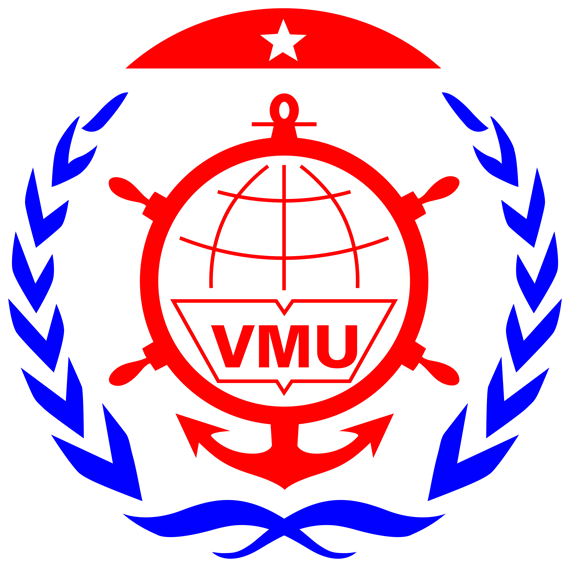1. Introduction
|
Program title: |
Bachelor of Economics of International Trade |
|
Graduation degree: |
Bachelor's degree |
|
Study model: |
Full-time |
|
Total credits: |
142 |
|
Used language: |
Vietnamese, English |
|
Training duration: |
4 years (8 semesters) |
|
Responsible Faculty: |
Faculty of Economics |
|
Website: |
|
|
Address: |
Room 110, 1st floor, A4 Building, Vietnam Maritime University 484 Lach Tray - Le Chan - Hai Phong |
The Economics of International Trade bachelor's program at Vietnam Maritime University is designed and issued by the Faculty of Economics for School of Excellent Education, drawing upon curricula from prestigious domestic and international educational institutions. The program is regularly reviewed, updated, and adjusted to meet the evolving practical needs of graduates and fully complies with the regulations set by the Ministry of Education & Training and Vietnam Maritime University. Participants of this program are trained comprehensively not only in knowledge but also in essential skills and professional attitudes, aligning with the Vietnamese National Qualifications Framework and various international competency standards required for the 21st-century workforce. The mission of the program is to develop high-quality human resources to serve the strategy for maritime economic development, national competitiveness, and international integration, particularly enhancing Vietnam's foreign trade sector.
The program aims to train graduates who possess extensive knowledge in market research, international trade policies, and foreign trade operations. Graduates of the Bachelor of International Economics program are equipped for diverse roles in both domestic and international markets. Potential career paths include international trade specialists, market analysts, international investment consultants, customs officers, logistics and supply chain managers, international business negotiators, and trade policy advisors. These professionals can excel in various sectors such as government agencies, multinational corporations, trade promotion organizations, and research institutions. In addition, graduates also have the conditions and ability to continue studying and improving their qualifications both domestically and abroad. Graduates will be dynamic, creative, and adaptable, capable of competing effectively with peers in the Asia-Pacific region. They will contribute significantly to maritime economic growth, national development, and global economic integration.
2. Curriculum
The Bachelor of Economics of International Trade program is structured across 8 semesters, providing a balanced mix of theoretical knowledge and practical skills. The comprehensive curriculum includes basic knowledge, foundational economic theories, specialized subjects in international trade, and optional courses to enhance professional knowledge, and internships to provide real-world experience.
In Semester I, students gain foundation knowledge and skills in philosophy, mathematics, and problem-solving. Besides, Introduction to Economics course offers insights into the importance of studying economics and the basic requirements of the program.
Semester II continues to provide students with foundation skills focusing on economics, with courses on statistics and probability. Moreover, General Laws course draws a picture of legal framework and environment of business practices, while Microeconomics course gives students a peek into the behavior of individuals and firms in making decisions.
In addition, 04 courses on English skills are integrated into the first two semesters, equipping students with fundamental language skills, getting them well prepared for future English courses.
In Semester III, students are equipped with more necessary skills for researching and practicing economics. Macroeconomics course provides an overview on the performance, structure, behavior, and decision-making of economies, while courses on statistics, finance, taxation, and insurance give an overview of economic and business environments.
Semester IV is a turning point in the program, when students are exposed to basic knowledge of their major – international trade. Courses like Fundamentals of Logistics and supply chain management, International Trade Transactions, Econometrics, Principles of Accounting, and International Economic Relations provide a comprehensive and managerial view of foreign economic relations and related economic activities of countries.
During Semester V and VI, students get to delve into more specialized courses, covering a wide range of international trade-related activities, from legal frameworks and policies for international business to more specific issues such as e-commerce, foreign investment, marketing, customs procedures, international credits, communication and negotiation. Besides, Research Methodology in Economics course equips students with fundamental knowledge and skills needed to take part in researchs on various economic issues.
Semester VII requires students to apply the knowledge and skills they have learned to conduct more in-depth research in their major and to carry out project simulation assignments in International Freight Forwarding, International Business, and International Payments courses, which are all conducted in English.
In the final semester, students consolidate their learning through practical applications. The final Internship allows them to gain direct experience in international business environments, apply their theoretical knowledge practically, and develop essential skills, while the Dissertation further enables students to demonstrate their comprehensive understanding of international economics, capable of contributing valuable solutions to contemporary economic and trade challenges.
Overall, the Bachelor of Economics of International Trade at Vietnam Maritime University ensures graduates are comprehensively prepared to meet the demands of the global trade environment, fostering a generation of capable professionals ready to contribute to economic development and international integration.
